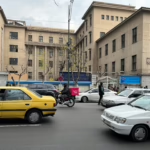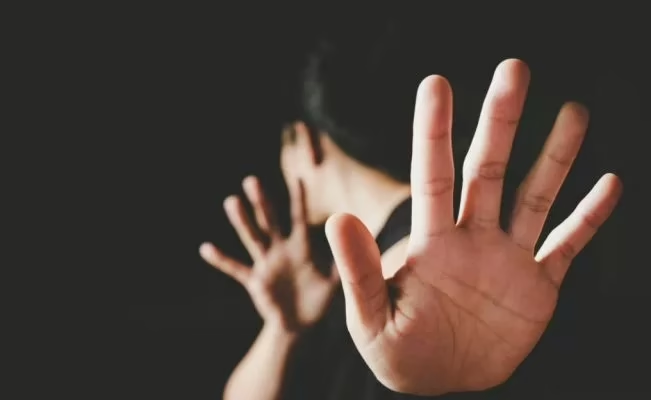In public settings, many couples present an image of happiness-smiling, sharing laughter, and holding hands as if their relationship is flawless. Yet, behind the privacy of their homes, a far grimmer reality unfolds. Numerous individuals silently endure tears in bathrooms, kitchens, and cars, bearing emotional trauma and physical injuries. What begins as love can tragically transform into fear, and tenderness into abuse.
From bruises and swollen eyes to cuts and bandaged wounds, survivors of domestic and sexual violence often conceal their suffering with fabricated explanations like “I slipped” or “I bumped into something.” Alarmingly, many go to great lengths to shield their abusers-whether partners, parents, or guardians-motivated by fear, shame, or the hope that things will improve.
The silence surrounding male victims is particularly profound. Social conditioning urges men to “tough it out,” leading many to suppress their pain, worried about mockery or rejection if they reveal their abuse. Society frequently dismisses their experiences, clinging to the misconception that men cannot be victims, especially at the hands of women.
Consequently, countless men endure abuse in isolation, their voices muffled by stigma, their injuries hidden beneath long sleeves and forced smiles. LEADERSHIP Weekend emphasizes that breaking this silence is crucial to halting the cycle of violence affecting all genders.
In Nigeria, the phrase “domestic violence” often evokes the image of a husband assaulting his wife. However, the issue is far more nuanced, impacting lives in ways society frequently overlooks.
UN Women reports that nearly one-third of women globally-about 736 million-have suffered physical or sexual violence, predominantly from intimate partners. In Nigeria, the National Demographic and Health Survey indicates that 31 percent of women aged 15 to 49 have experienced physical violence. Yet, emerging NGO data reveals a lesser-known reality: over 25 percent of men have also endured abuse in their relationships, challenging the stereotype that domestic violence exclusively affects women.
At a recent media briefing in September, marking Domestic and Sexual Violence Awareness Month, Lagos State’s Attorney General and Commissioner for Justice, Lawal Pedro (SAN), disclosed startling figures. Between August 2024 and July 2025, Lagos recorded at least 8,692 cases of domestic and sexual violence. Domestic violence alone accounted for 3,685 cases, making it the most reported crime in the state during that period.
Violence is not confined to public spaces or stereotypical scenarios; it often occurs behind closed doors, shrouded in silence. It affects widows, children, respected community figures, and men who seldom voice their pain.
Take the case of Grace Unachukwu, 42, from Owerri, Imo State. After her husband’s death, instead of receiving compassion, she was branded a witch by her late husband’s family-a tactic used to strip her of her rights and dignity.
She endured degrading “cleansing” rituals, was forcibly evicted from her home, and left destitute. “They took everything, even the pots in my kitchen,” she recalled. Though disguised as tradition, such practices perpetuate violence and dispossession, especially against widows.
Grace’s experience highlights how domestic violence extends beyond physical harm to include economic, emotional, and cultural oppression, underscoring the urgent need for comprehensive government intervention.
Now residing in a modest rented room on the town’s outskirts, with her children dispersed among relatives, Grace’s story reflects how widowhood can mark the beginning of a new form of violence.
In Ibadan, 12-year-old Kemi Ojo suffers daily abuse from her stepmother. Frail and covered in scars, Kemi is beaten for minor mistakes and starved despite ample food. She conceals her injuries beneath her school uniform. “Sometimes I dread going home. I’m not her child, so she treats me however she wants,” Kemi confided.
At school, Kemi often falls asleep from exhaustion and hunger. Her tear-stained notebooks caught teachers’ attention, but when questioned, she insists she’s “fine” or that she simply fell while playing. Her father’s inaction deepens her sense of abandonment; she has learned that no one will defend her.
Experts warn that children in stepfamilies face heightened risks of abuse when guardians perceive them as outsiders. The Domestic and Sexual Violence Agency in Lagos has documented numerous cases where such children are deprived of food, affection, and education due to resentment.
Ngozi Okonkwo, 15, lives with her mother and stepfather in Dutse, Abuja, following her parents’ divorce. Every night, her stepfather sexually assaults her. Her cries for help go unheard, and her mother warns her never to disclose the abuse to outsiders.
Sixteen-year-old Ifeoma Nwankwo once hoped her parents’ divorce would bring peace. Instead, she became caught in their bitter conflicts. Her father insults her mother in her presence, while her mother vents anger on her. Twice she fled home and now survives on the streets of Asaba, doing menial jobs to get by. “The streets felt safer and quieter. I’m never going back,” she told LEADERSHIP Weekend.
Yet, life on the streets carries its own dangers. Ifeoma is among many teenagers who roam daily, skipping school and searching for food, vulnerable to rape, kidnapping, and other violence.
LEADERSHIP Weekend also spoke with 19-year-old Zainab Abdul, brought from her Kaduna village to Abuja by a recruitment agency promising education but forced into domestic servitude in Gwarimpa. She wakes before dawn to clean, cook, and tend a vegetable farm, caring for a baby despite being a child herself. Her hands are rough and aching, her back marked by bruises from frequent beatings.
Neighbors, disturbed by her cries, have reported the abuse to police multiple times. On one occasion, Zainab’s fingers were burned with a candle as punishment for eating the baby’s food. Her employer was arrested but quickly bailed out by her husband.
Despite this, Zainab remains trapped in the household, while her parents remain unaware of her suffering.
In Lagos State, abuse often hides behind the walls of churches. Mrs. Esther O., 39, wife of a prominent charismatic pastor, has perfected the art of concealing her pain.
She shared with LEADERSHIP Weekend that beneath her choir robe lie bruises from nights of violence. Every Sunday, she sits in the front pew, smiling as her husband preaches about love, submission, and marriage sanctity.
“The congregation reveres my husband as an anointed man of God,” she said. “But when the lights dim and the crowd leaves, I brace myself for his fists. He says God made him the head and that I must submit, even to pain. If I resist, he claims I’m resisting God.”
Esther’s church friends see only her radiant smile and elegant headwrap, never the swollen lips hidden beneath lipstick. Speaking out would shatter not only her marriage but her husband’s ministry.
Shanna Okoro, 29, once a devoted member of a respected church in Port Harcourt, Rivers State, believed deeply in her pastor, Reverend Samuel Eze. “People warned me about him, but I defended him,” she recalled. One evening, a private meeting with the pastor turned into an attempted assault. By chance, someone interrupted, allowing her to escape. Shaken, she never returned. The congregation remains unaware or unwilling to acknowledge the darkness behind his reputation.
“My faith has changed,” Shanna said. “I still pray, but I’m wary of religious leaders.”
In Lokoja, Kogi State, Chief Abraham Ogbole, 55, is publicly celebrated as a philanthropist and community leader. He funds scholarships, donates to churches, and attends charity events. Yet, behind closed doors, his 17-year-old daughter, Ojonugwa, lives in terror. He has been sexually abusing her since she was 10. “To the world, he’s a respected man,” she whispered tearfully. “To me, he’s a predator. If I speak, no one will believe me.”
Ojonugwa confides mainly in her school counselor. Her room in their large estate is both refuge and prison. Every knock makes her heart race. She dreams of university as her escape from her father’s grasp. In her family, silence is survival, and appearances are everything.
A women’s rights advocate familiar with such cases explained, “Families protect abusers because of their status, wealth, and name, leaving victims isolated.” Ojonugwa’s mother silenced her fears, saying, “Don’t speak of this. Do you want to destroy the family?” Thus, Ojonugwa remains trapped between love, fear, and her father’s reputation.
Voices of Survivors: Stories of Domestic and Sexual Abuse
Amaka Obi, 28, recalls the early days of her marriage in Enugu with mixed emotions. She fell for Emeka, a charming entrepreneur who promised forever. Life seemed perfect until after their first child’s birth.
Emeka’s temper worsened, erupting into violent episodes over trivial matters. “I forgave him repeatedly,” Amaka said, hands clenched. “He’d apologize, bring gifts, cry on his knees. I believed him.” This cycle of abuse and remorse persisted until tragedy struck-their baby died just before turning one. Grieving, Amaka was beaten by Emeka. “That day, something inside me broke.”
Her family, suspecting the abuse, intervened. Her brothers removed her from the home, refusing to let her return. “If not for them, I might still be there,” she admitted. Now living with her parents in Nsukka, Amaka is rebuilding her life. The scars remain, but so does her resilience. “Love should never hurt,” she affirmed.
Abuse is not limited to women and girls; men also endure violence, often in deeper silence due to cultural pressures and stigma.
In Onitsha, Anambra State, Chidi Nwankwo, 36, a spare-parts trader, shared his experience of emotional and physical abuse. His wife, Ngozi, had a fiery temper, and arguments often ended with slaps, insults, or torn clothes. “She slapped me, insulted me, tore my shirt in front of neighbors,” Chidi said quietly. “I wanted to leave but feared ridicule. A man beaten by a woman is a disgrace in our culture.”
At his workplace, whispers followed him. Some mocked him as “nwoke nwanyi,” meaning a man who behaves like a woman for not controlling his wife. Others urged him to “be a man” and endure. Unlike women, men like Chidi have few shelters or advocacy groups to turn to.
“If you report, even the police laugh. They don’t take it seriously,” he said. For years, he remained silent, not only because of the abuse but also due to fear of humiliation. His silence reflects that of many men trapped by rigid notions of masculinity that leave no room for vulnerability.
Domestic violence cases continue to rise across Nigeria, affecting both genders in deeply personal and often hidden ways. Contrary to popular belief, men are not immune to abuse.
The NGO Purple Lifeline Connection estimates that one in four Nigerian men have experienced abuse in intimate relationships, challenging stereotypes and highlighting the need for inclusive support systems.
A study in Sokoto State revealed alarming figures: nearly all male respondents reported some form of violence, with 90.8 percent experiencing psychological abuse, 20 percent physical violence, and 90.8 percent sexual abuse.
For women and girls, the situation is even more severe. The United Nations reports that 31 percent of Nigerian women aged 15-49 have faced physical violence, often from partners or trusted individuals.
These statistics reveal systemic failures in protecting vulnerable populations. The silence surrounding abuse, especially among men and children, exacerbates the crisis.
Domestic violence in Nigeria is often trivialized as “family disputes,” hindering serious intervention and allowing abuse to persist behind closed doors.
In reality, domestic violence is a public health emergency and a profound human rights violation requiring urgent action from governments, civil society, religious leaders, and communities.
Dr. Muraina Kamilu Olanrewaju, a counseling psychologist at Al-Hikmah University, Ilorin, attributes many domestic violence cases to poor emotional regulation, impatience, and external interference in relationships.
“Many people lack emotional intelligence. Without understanding individual differences, conflicts escalate into violence,” he explained.
He also noted that children exposed to abuse often normalize it and may perpetuate the cycle in adulthood. “Environment shapes behavior as much as personality,” he said.
Dr. Olanrewaju rejected the idea that gender alone dictates abuse experiences, emphasizing that both men and women suffer silently. “Personality differences matter more than gender,” he stated. He also criticized cultural norms that minimize abuse or pressure victims to endure for family reputation. “Our society values appearances over safety, silencing victims,” he added.
For lasting change, he advocates ongoing family counseling, public education campaigns, impartial law enforcement, and reforms within religious institutions. “Religious leaders should not only preach peace but also receive training to address domestic violence,” he stressed. “Pain knows no gender. We must treat domestic violence as a collective issue, not a private one.”
Although Nigeria has legal frameworks like the Violence Against Persons Prohibition (VAPP) Act of 2015, which criminalizes physical, emotional, sexual, and economic abuse, enforcement remains a major challenge. As of 2025, only 19 states and the Federal Capital Territory have adopted the law, leaving many regions without legal protection for victims.
Legal expert Oghenovo Otemu, Esq., explained that challenges in addressing domestic violence reflect broader enforcement weaknesses. Abuse often occurs in homes where perpetrators dominate vulnerable victims. Security personnel, often inadequately trained, dismiss cases as “family matters.” Cultural and traditional pressures further discourage victims from seeking justice, favoring informal resolutions.
Otemu highlighted economic hardship as a significant barrier. Many victims lack financial independence and remain trapped in abusive environments. Even when NGOs or pro bono lawyers intervene, perpetrators use influence to intimidate witnesses, leading to dropped cases.
“Victims are caught between fear and lack of protection,” Otemu said, noting that this makes credible court testimonies difficult.
The situation worsens in states without the VAPP Act, leaving survivors unprotected. Even where the law exists, enforcement is hampered by poor infrastructure. Unlike developed countries where victims can access shelters or foster care, Nigerian survivors often remain in abusive homes, facing ongoing threats.
Regarding legal remedies, Otemu stressed that legislation alone is insufficient. “Without proper infrastructure to remove victims from harm, survivors cannot enforce their rights or testify confidently,” he concluded.
Ultimately, Otemu argued that Nigeria’s domestic violence crisis stems from broader governance failures, including inadequate social infrastructure, poor data systems, and weak protection mechanisms. Without addressing these systemic issues, survivors will continue abandoning cases, leaving perpetrators unpunished and law enforcement ineffective.

















